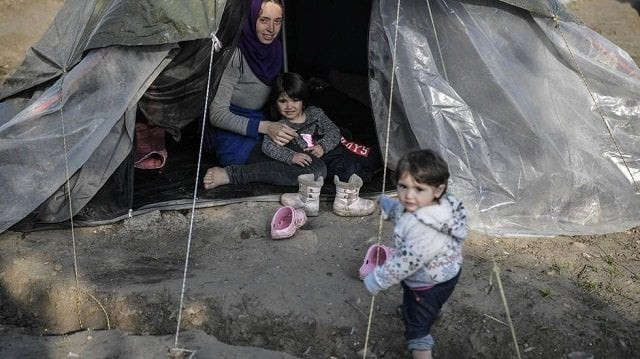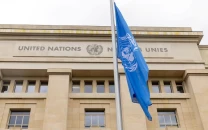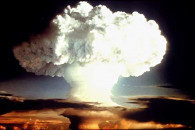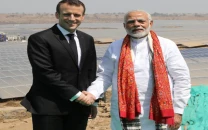As global refugee meet begins, rich nations urged to do 'fair share'
At the end of 2018, nearly 71 million people were living in forced displacement due to war, violence and persecution

The UNHCR expects those numbers could rise further when the 2019 statistics calculated. PHOTO: AFP
The Global Refugee Forum begins exactly a year after the UN General Assembly adopted a framework aimed at creating a more predictable and equitable approach to providing assistance to refugees and host communities.
The meeting is the first of its kind, pooling together heads of state, government ministers but also business leaders, humanitarians and refugees themselves to offer ideas and pledges for more efficient support.
Donor nations back Afghan refugees’ repatriation
"We are emerging from a decade of displacement during which refugee numbers have surged," UN refugee chief Filippo Grandi said in a statement.
At the end of 2018, nearly 71 million people were living in forced displacement due to war, violence and persecution, including nearly 26 million people who had fled across borders as refugees.
With a full 80 per cent of the world's refugees living in poor and developing countries, which often feel left to shoulder the heavy economic and societal costs alone, burden-sharing is high on the agenda.
The need for the world's wealthier nations to do their share will likely be hammered home by Turkish President Recep Tayyip Erdogan.
Turkey is the world's largest refugee host with more than three million refugees on its soil, mainly from Syria.
Erdogan is expected to renew demands for more international support, and could also reiterate his threat to allow millions of Syrian refugees to go to Europe if the international community does not do more.
The UN said it was expecting hundreds of pledges from countries, organisations and businesses, including financial donations, but also technical and material assistance, legal and policy changes meant to help ensure greater inclusion for refugees.
It is also hoping for more resettlement spots in third countries for vulnerable people already living as refugees, and moves to ensure safe returns to their places of origin.
The forum officially opens Tuesday morning with speeches by Grandi, UN Secretary General Antonio Guterres, Erdogan and other high-level speakers.
On Monday, the spotlight was on the possible contributions of the private sector, and the some 100 businesses taking part in the event.
"Businesses are really influencing refugee inclusion through education, jobs and the power of entrepreneurship," Dominique Hyde, head of external relations for UNHCR, told reporters in Geneva.
"Every action counts and everyone counts."
For instance, mobile phone group Vodafone announced it was expanding a partnership with UNHCR for "connected education", which provides refugees with a free digital learning programme, with tablets, laptops and other necessary equipment provided.
Vodafone said it currently reaches around 86,500 refugee students across eight refugee camps in Kenya, Tanzania, the Democratic Republic of Congo and South Sudan, but that it aimed to dramatically expand the programme to reach 500,000 students by 2025.
During the two-day forum, Grandi is also expected to announce a goal of ensuring electrical provisions to all refugee camps on the planet by 2030.
But the challenges remain overwhelming, aid charity Oxfam warned Monday, charging that today's system is "fatally flawed and putting the responsibility unfairly upon some of the poorest countries".
'People were hiding': Bangladesh bid to repatriate Rohingya stalls as refugees refuse
"Millions of vulnerable refugees are at risk or stuck in limbo because many countries are failing to shoulder their fair share of responsibility for protecting people forced from home," Oxfam chief Danny Sriskandarajah said in a statement.
Mohammed Badran, a 25-year-old Palestinian refugee who fled Syria's war for the Netherlands, meanwhile urged the international community to ensure concrete actions are agreed to and implemented.
Badran, who is among 60 refugees attending the forum, told AFP he feared the event could become just another conference with lots of speeches but little action.
"We need actions and we don't just need empty words," he said.



















COMMENTS
Comments are moderated and generally will be posted if they are on-topic and not abusive.
For more information, please see our Comments FAQ